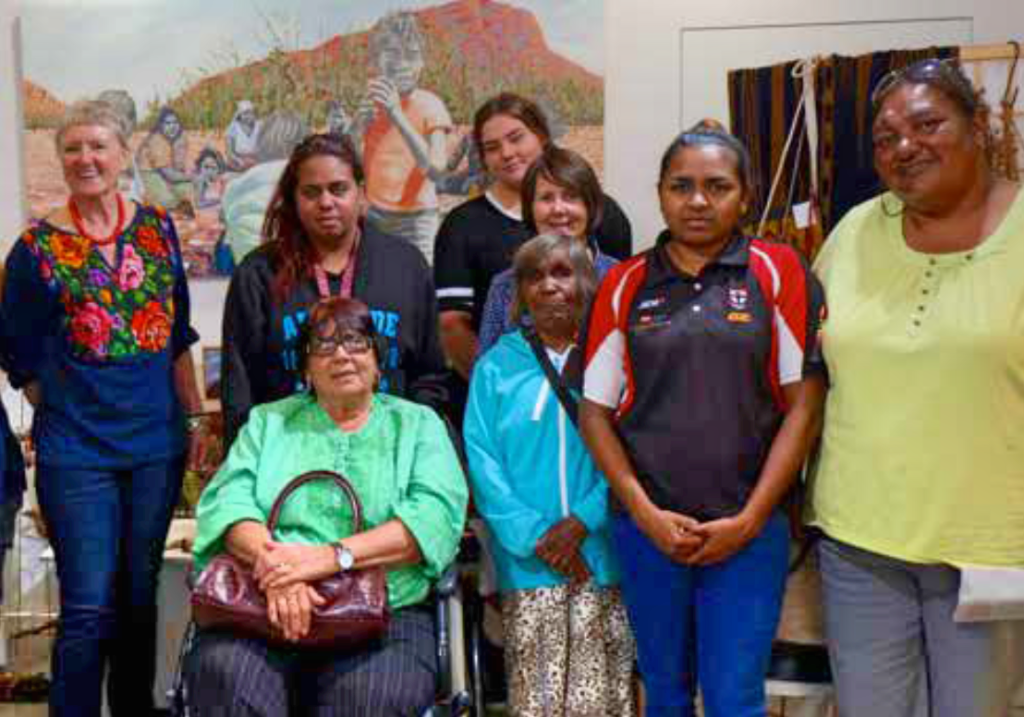Community stories: 26 June 2017

The very remote community of Oodnadatta is located more than 1,000 km north of Adelaide in South Australia. It is rated RA5 ‘very remote’ – the highest level of remoteness on the SA Department of Health’s DoctorConnect’s Geographical Classification System, and faces a range of challenges including high unemployment, poverty, poor health and low levels of education. The community self-identified itself to be a part of a pilot Aboriginal Volunteer Program (AVP), run by Volunteering SA and NT, in 2012.
The AVP is a partnership between the Oodnadatta community, Volunteering SA and NT, its Aboriginal Reference Group, and Australian Volunteers International. As a result of this partnership, Indigenous volunteers worked with local Indigenous women to extensively renovate the town’s Women’s Shed for creative endeavours, including painting, sewing, knitting and jewellery-making. The women aimed to consolidate these activities, capitalising on growing tourism opportunities, as well as the artistic talents of community members, by creating a micro business at the Shed where products would be made and sold to tourists.
Volunteering SA and NT received a $10,000 ANZ Seeds of Renewal grant to develop the women-led arts and crafts social enterprise, through research, the creation of an action plan, provision of training and materials to set up the business at the newly renovated Women’s Shed in Oodnadatta.
In 2016, a small group of women from Oodnadatta, as well as two Aboriginal volunteers, spent two days visiting a cluster of communities around Alice Springs to view boutique social enterprises in action to gain exposure to the range of skills needed to make a business work. It was an opportunity for market research, including what products are produced and sold by Aboriginal enterprises, exploring product ideas and understanding the concept of profit margins, how products are marketed and sold and the governance structures of different enterprise.
During the course of the 2015 Aboriginal Volunteer Program, and again in parallel with the social enterprise exposure tour, a sample survey of visiting tourists was conducted to identify what products are likely to find the readiest market in Oodnadatta and beyond. This was followed by a series of virtual workshops to explore how to create and manage a social enterprise, and enabled the women to reflect on what they really wanted from their arts and crafts.
Overall, the project has broadened the horizons of a diverse group of Aboriginal women from Oodnadatta, providing opportunities for the women to recognise their own skills and talents and exposing them to the array of potential opportunities for creating a social enterprise project/s in Oodnadatta. This project allowed a safe, fun and supportive environment for the Aboriginal women to come together, with the guidance of experts, to dream and explore the possibilities for themselves and their community.

